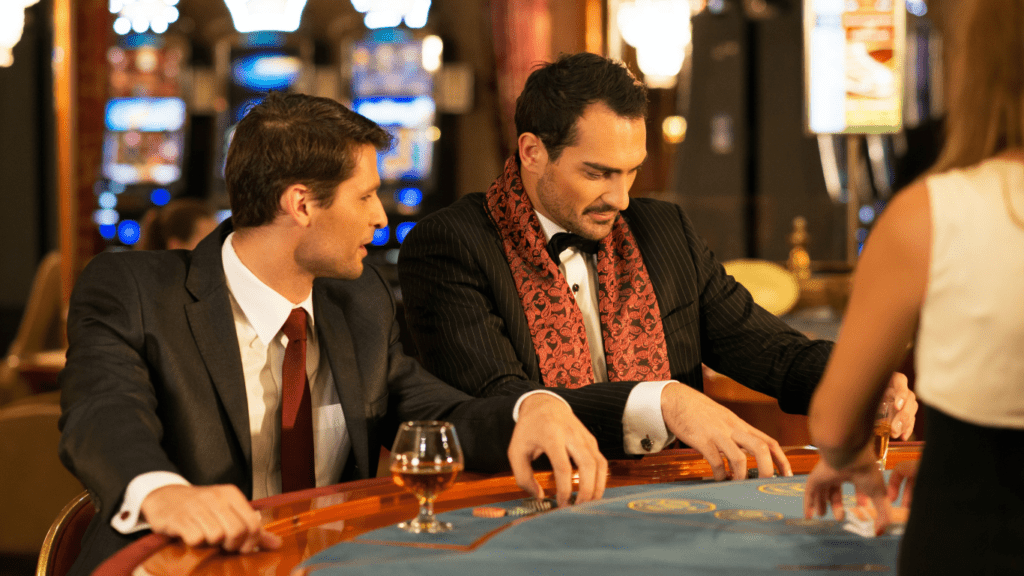Gaming can be an exhilarating experience, but it’s easy to get caught up in the thrill and forget the importance of playing responsibly. Over time, I’ve realized that adopting smart gaming habits not only keeps the fun alive but can actually boost your chances of winning. It’s not just about luck—it’s about strategy and self-control.
Understanding Responsible Gaming
Responsible gaming prioritizes maintaining control and making informed decisions while playing. It’s about aligning entertainment with discipline to avoid negative impacts on finances or well-being. By focusing on strategies and setting limits, I increase enjoyment and sustain a positive gaming experience.
Managing budgets ensures spending aligns with personal financial boundaries. For example, allocating a fixed amount for gameplay prevents overspending. Sticking to this budget reduces stress and increases confidence in decision-making.
Setting time boundaries prevents excessive play and protects other priorities. I use time tracking or alarms to divide gaming into manageable sessions. This approach improves focus and ensures balance in daily activities.
Avoiding emotional play helps mitigate rash decisions. Instead of reacting to wins or losses emotionally, I rely on objective reasoning. For example, stopping gameplay after consecutive losses prevents chasing losses impulsively.
Educating oneself about game mechanics reduces reliance on luck. I study rules, strategies, and odds when approaching any game. Knowledge sharpens skills and fosters smarter choices over time.
Incorporating these principles creates a strong foundation for better decision-making and healthier gaming patterns.
Habit 1: Setting A Budget
Maintaining control over your spending creates a stable foundation for responsible gaming. A well-defined budget helps avoid financial stress and maximizes your ability to make rational decisions.
Why Budgeting Matters
Establishing a budget prevents overspending, protecting both your finances and your gaming experience. Losing more money than planned often leads to emotional decision-making, which impacts performance and increases risk. With a budget, you create boundaries that allow you to focus on strategy rather than financial concerns. For instance, setting a $50 weekly limit ensures you don’t exceed a manageable amount, even during losing streaks.
Budgets also add structure to your sessions. You decide in advance how much you’re willing to spend, creating clear financial parameters. This approach encourages thoughtful play rather than impulsive betting, improving your odds by fostering discipline and control.
Tips For Sticking To Your Budget
1. Set Realistic Limits
Choose a budget based on your disposable income to avoid financial strain. For example, allocate 5% of entertainment funds to gaming instead of cutting into necessary expenses like bills.
2. Keep Track Of Spending
Maintain a record of each gaming session’s costs. Use tools like apps, spreadsheets, or gaming platform histories to monitor your adherence. This visibility can highlight patterns and help refine future budgets.
3. Withdraw Only Pre-Planned Amounts
Carry or load only what fits your budget into your wallet or account. For instance, if your daily limit is $20, withdraw precisely that amount to prevent overspending.
4. Separate Winnings From Gaming Funds
Store winnings separately rather than reinvesting them immediately. This safeguards profits and ensures you don’t exceed the original budget.
5. Avoid Chasing Losses
Stick to the budget, regardless of outcomes. If you lose the pre-set amount for the session, stop playing to maintain your financial plan. This restraint supports smarter decision-making in subsequent sessions.
Habit 2: Knowing When To Stop
Recognizing limits ensures better control while gaming. It prevents impulsive decisions that could lead to losses or frustration.
Recognizing Signs Of Overplaying
Observing certain behaviors can help identify overplaying. Spending longer hours without breaks, ignoring responsibilities, or feeling anxious after playing are red flags. I pay attention to these signs to maintain balance. When I notice reduced focus, deteriorating performance, or frequent emotional decisions, I take time to step away. Consistently monitoring my habits keeps gaming enjoyable and prevents potential burnout.
The Role Of Self-Discipline
Maintaining self-discipline strengthens long-term gaming performance. I set clear time limits before I start playing and stick to them regardless of the outcome. Avoiding the urge to continue after losses or near-wins helps me make rational decisions. Practicing discipline ensures I make better choices, keeping me in control of my actions instead of letting emotions dictate behavior.
Habit 3: Choosing The Right Games

Selecting the most suitable games boosts both enjoyment and chances of success. Understanding game such their:
- mechanics
- strategies
- risk levels
helps me make smarter decisions.
Evaluating Game Odds And Strategies
I analyze game odds and the strategies involved before committing to play. Games like blackjack or poker, which blend skill and strategy, often offer better odds compared to chance-based options like slot machines. By studying payout percentages (e.g., RTP in slots) and house edges, I identify games that maximize winning potential. For example, blackjack’s house edge can drop below 1% with optimal strategy, while some slot machines exceed 6%. Familiarizing myself with rules and effective tactics ensures I play more competitively, reducing reliance on mere luck.
Avoiding High-Risk Games
I steer clear of games with significant volatility or disadvantageous odds. High-risk games, such as keno or certain lottery-style options, often feature minimal chances of winning. Instead, I prioritize games offering consistent returns or manageable risks, like baccarat or low-stakes poker. When evaluating a high-risk game, I consider its payout ratios, probability distributions, and frequency of smaller wins. By choosing balanced-risk options, I maintain control over my gameplay and avoid excessive losses that could impact both finances and enjoyment.
Habit 4: Staying Sober And Focused
Avoiding distractions and maintaining self-control are essential for optimal gaming performance. Staying sober and focused directly impacts decision-making and increases your chances of success.
The Impact Of Substance Use On Gaming Performance
Substance use disrupts focus and impairs judgment, which negatively affects gaming results. Alcohol consumption, for example, slows reaction times and clouds critical thinking, reducing the ability to follow strategies or identify patterns. Similarly, recreational drugs can cause overconfidence or emotional swings, leading to impulsive decisions. I always ensure my mind is clear while gaming to stay fully engaged and in control. Avoiding mood-altering substances helps me maintain sharpness and make calculated moves.
Enhancing Decision-Making Skills
A focused mind strengthens decision-making by improving observation and analysis. I analyze game dynamics effectively when I’m alert, adapting strategies based on real-time insights. This mental clarity reduces emotional reactions during losses, helping me stay rational. Techniques like practicing mindfulness or taking regular breaks create mental habits that reinforce concentration. By staying sober, I limit distractions and optimize my problem-solving ability, which increases winning odds over time.
Habit 5: Continuously Learning And Adapting
Developing a mindset of ongoing learning and flexibility sharpens decision-making and improves long-term gaming outcomes. By analyzing strategies and reflecting on past gameplay, I can identify areas for improvement and adapt accordingly.
Importance Of Studying Game Strategies
Studying game strategies helps me make informed choices and reduce reliance on luck during gameplay. For example, understanding probability in blackjack or optimal betting techniques in poker allows me to predict outcomes more accurately and plan my moves. I often review guides or strategy charts to gain insights into gameplay nuances, ensuring I play with a calculated approach rather than reacting impulsively. Researching hidden mechanics, payout patterns, or advanced strategies maximizes my odds and minimizes unnecessary risks.
Learning From Past Gameplay
Reviewing past gameplay reveals patterns and mistakes that can inform future strategies. For instance, I analyze how often specific decisions led to wins or losses to refine my approach. By tracking results or maintaining a gaming log, I can recognize trends, such as overly aggressive betting or poor timing, and adjust my style. Reflecting on losses without emotional bias helps me avoid repeating errors, while analyzing successful strategies reinforces good habits. Regularly assessing my performance boosts consistency and fosters growth over time.





